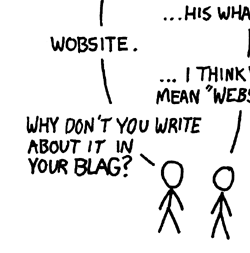Okay, so, Start of the problem is simple. I want an AI such that when I say, “Tell me a joke about nails!” I’d like to have some reasonable answers back about either Jesus or manicures.
It’s a problem that I would have never visited myself — I mean, if I were to implement one, I’d just make a google API call and get the result, instead of crawling through some corpus that I have to scrape and crawl my self.
But otherwise, the underlying problem is very interesting: We’re comparing sentences, not documents, not words. Hum.
We’re going to visit a few Gensim implementations, and a few home-brews to see how things compare. Quantification and comparison of methods will be… qualitative. Some of the methods, word mover’s distance for example, are unapologetically long and GPU consuming. As a hobo, I’ll have to resort to using my verbal skills and pragmatism to settle scores.
But first, crawling. Where the heck do we get jokes?
The first joke source that I got my hands on is interesting: Kids Write Jokes Twitter handle.
Twitter has well implemented, well used, well supported API that make things very very simple.
TL;DR: pip install tweepy
Given all tweets, we load them with pandas.
1
2
3
df = pd.read_json("./kidswritejokes/kidswritejokes_tweets.json")
df.sample(10)
A random sample of the json file reveals this:

You can see features and problems within the data immediately:
- we only need the text column
- The text is a mix of tags, comments, references that are not jokes.
- The jokes are in the format of: `Q:...? \n\n A:...`. For example, "Where's batman? \n\n Some silly answer here."
So immeidately, one can start stripping away useless information and things that are not jokes:
1
2
3
4
5
6
7
8
9
10
11
12
13
14
15
16
# get all potential jokes
joke_list = list(df['text'])
# filter all non-jokes
jl = list(filter(lambda x: (x.count('\n')>1 & x.count('@')==0 & x.count('//')==0 ), joke_list))
# split potential jokes into Q&A format
joke_list_list = list(map(lambda jk: list(filter(lambda x: len(x) >0, jk.split('\n')))[-2:], jl))
# Strip all jokes with hashtags, links, etc.
joke_list_list = list(filter(lambda jk:
jk[0].find('http') ==-1 &
jk[0].find('.com') ==-1 &
jk[0].find('@') ==-1 &
jk[0].find('\\') ==-1 &
jk[1].find('http') ==-1 &
jk[1].find('.com') ==-1 &
jk[1].find('@') ==-1 &
jk[1].find('\\') ==-1 , joke_list_list))
The result is as desired:

Which reduces about 3k+ lines of jokes, comments etc. to ~250 Q&A style jokes.
A bigger list (about 200k+) of short jokes are actually available at Kaggle:
Kaggle Short Jokes


